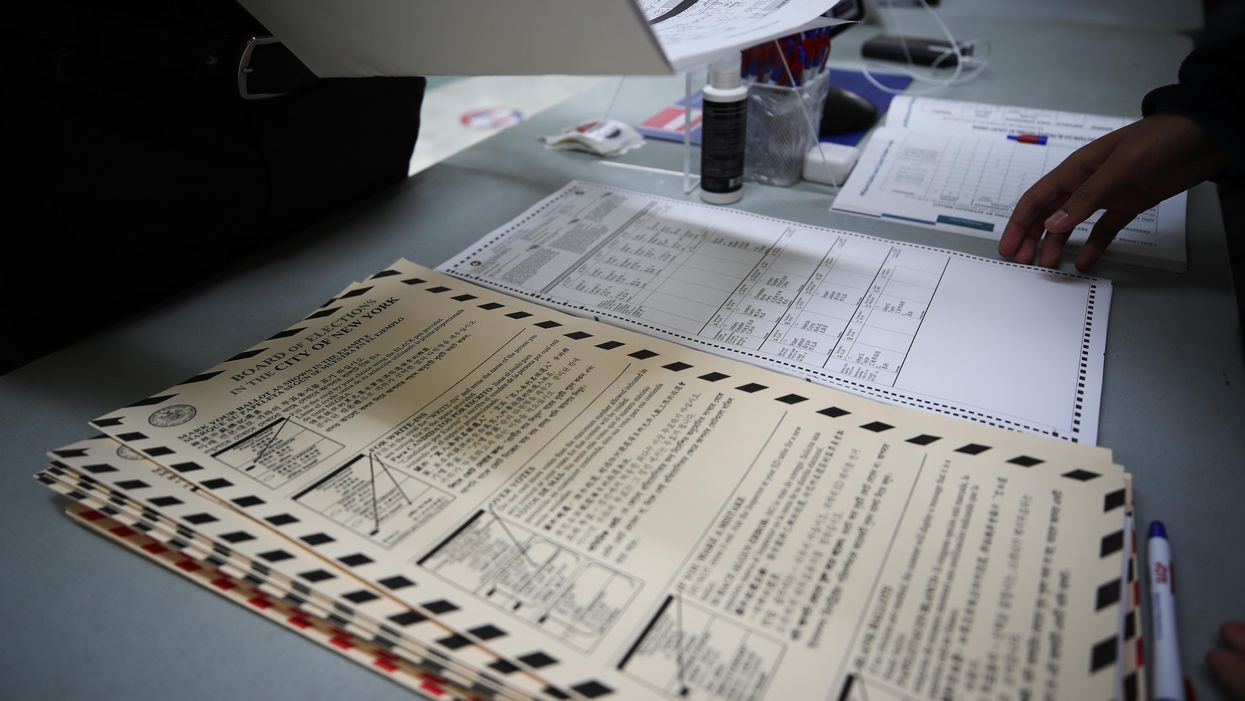One minor political party is fighting to remain on the ballot in New York, but its efforts — and those of other alternatives to the Democratic and Republican parties — were dealt a severe blow this week.
The 2nd U.S. Circuit Court of Appeals on Wednesday upheld a lower court's ruling, rejecting a challenge to New York's new ballot qualification rules. The Serve American Movement (also known as the SAM Party) claimed the rule change, which increased the number of votes political parties need in order to qualify for the ballot, violated its members' First and Fourteenth amendment rights.
Democracy reform advocates argue limiting ballot access for third parties only perpetuates polarization and the two-party duopoly in America. The share of voters who don't identify with either major party has trended upward over the past two decades and is expected to continue to grow.
Last April, New York increased the vote share political parties must receive in order to qualify for the ballot, to 130,000 votes or 2 percent of the overall ballots cast in presidential and gubernatorial elections. State officials say this higher threshold will help declutter the ballot and prevent voter confusion. Previously, political parties only needed to secure 50,000 votes every four years to qualify.
The SAM Party became an officially recognized political party in New York after its gubernatorial ticket received 55,000 votes in 2018. The minor party describes itself as "a new kind of candidate-focused, process-driven political party, rather than one predicated on shared substantive policy positions or ideologies."
With its status in jeopardy, the SAM Party decided to challenge the state's rule change in federal court, arguing it violates the U.S. Constitution.
But in September the U.S. District Court for the Southern District of New York ruled that it "failed to demonstrate that allowing the amended party qualification requirements to take effect would violate their Constitutional rights, otherwise cause irreparable harm to the plaintiffs, or be against the public interest."
The SAM Party appealed this ruling but the 2nd Circuit affirmed the district court's ruling.
"We hold that Appellants are not likely to succeed on the merits of their First Amendment claim because the burden imposed by the presidential-election requirement is not severe and justified by the State's interest in uncluttered ballots, effective electoral competition, and the preservation of resources dedicated to public financing of elections," the court's three-judge panel wrote in the opinion.
Because the SAM Party chose not to participate in the 2020 election, it failed to meet the new qualifications. Only two minor parties in New York state, the Conservative Party and the Working Families Party, retained their statuses following last year's election.
David Jolly, executive chairman of the SAM Party, said the party is evaluating its next legal move and has not given up its plans to again become a credible party in the state.
"Fundamentally for New Yorkers it's a sad day for democracy because what the governor and the legislature have done is they've cut down on choices for New Yorkers," said Michael Volpe, chairman of SAM New York.




















